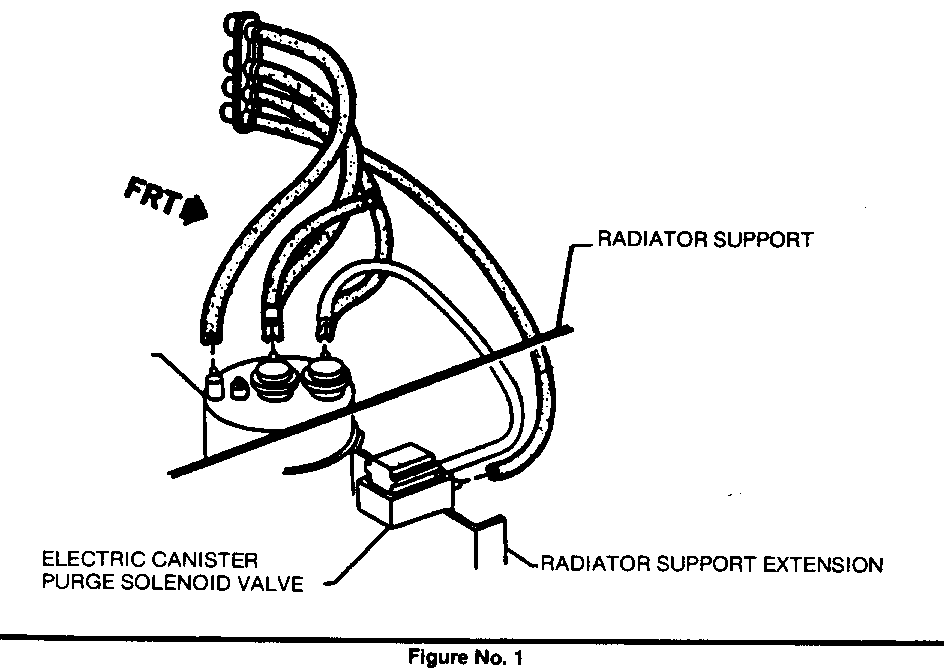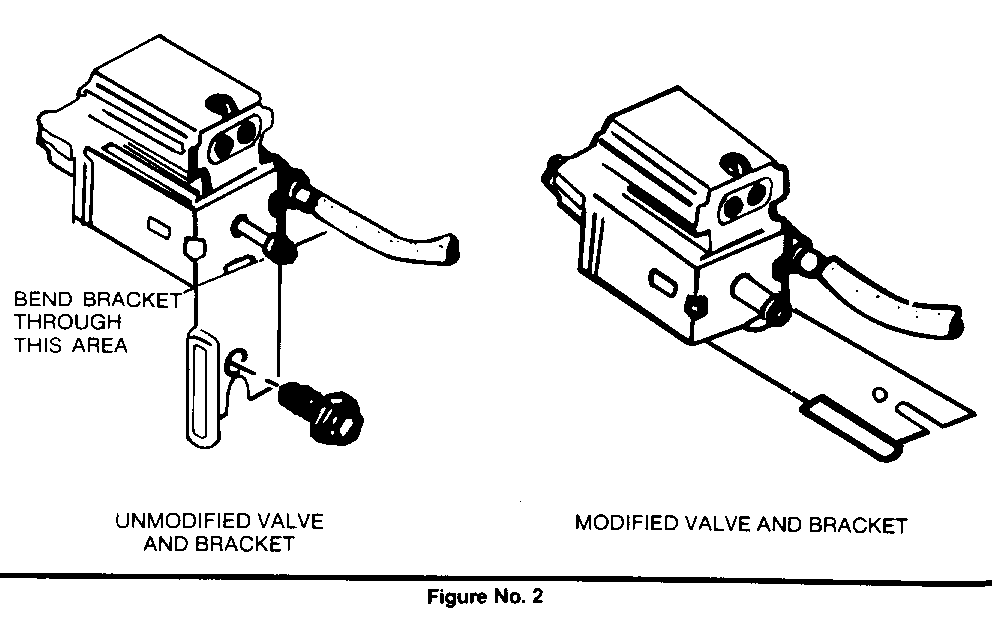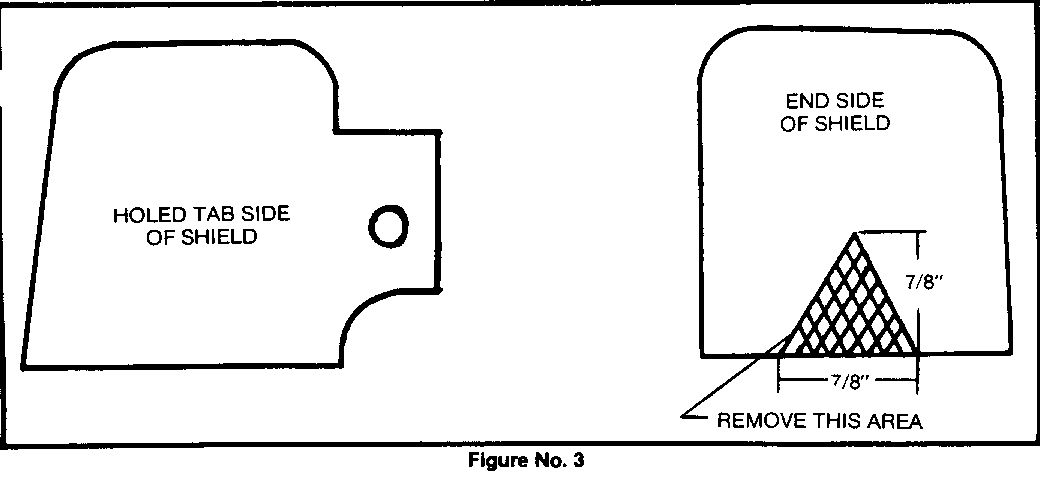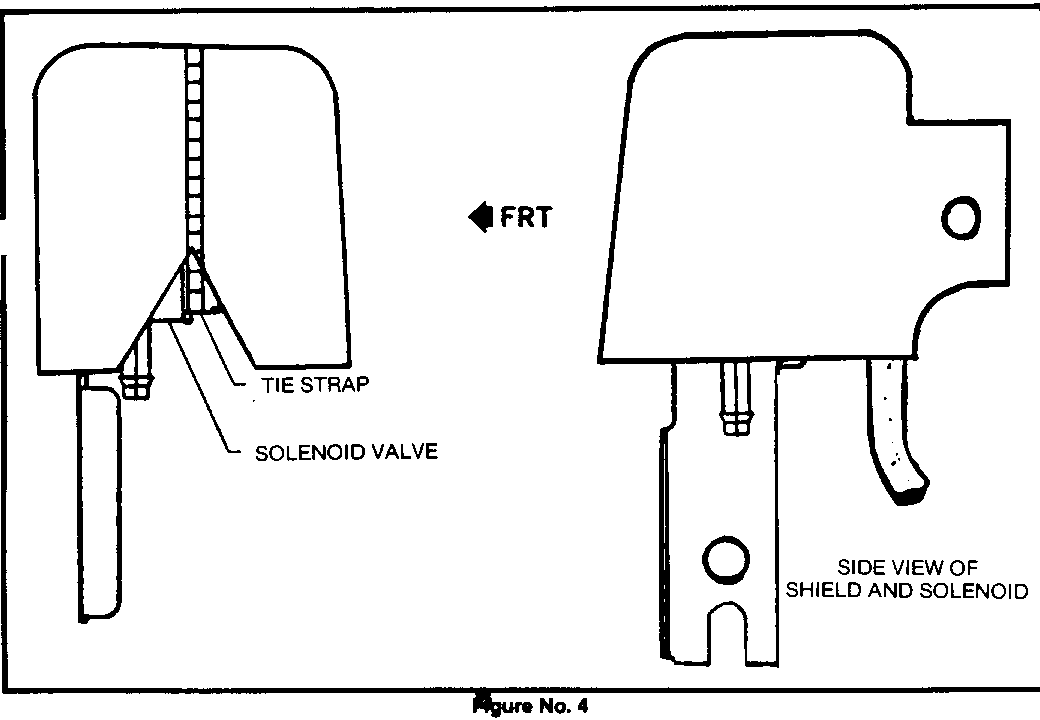CEL CODE 23,24 OR 54 4.3,5.0,5.7 - CALIF.EMISSIONS

Model and Year: 1985-86 G VANS WITH 4.3L, 5.0L, 5.7L ENGINES AND NB2 CALIFORNIA EMISSIONS
TO: ALL CHEVROLET DEALERS
Some 1985-86 G Vans witb NB2 California emissions may experience a shorted out electric purge solenoid valve (See Figure No . 1). This condition may be caused by moisture entering the electrical portion of the canister purge solenoid valve, setting a false Code 54.
If this condition is encountered and the inspection of the solenoid indicates that replacement of the solenoid is required, replace the purge solenoid valve and install a new moisture shield, P/N 140665C3, which has been released to correct the condition. The electronic control module (ECM) may also have a failed quad driver in the mixture control solenoid (M/C) circuit and the ECM should be checked to make sure it was not damaged, if the purge solenoid valve is shorted out. If the ECM is damaged, it also must be replaced.
Removal and installation procedures for the electric canister purge solenoid valve and the ECM are in Section 6E8, Emissions, of the Light Duty Service Manual.
Before the new moisture shield can be installed, modifications to the purge solenoid valve bracket and moisture shield must be completed.
MODIFICATION: SOLENOID VALVE ---------------------------- The solenoid valve bracket must be reshaped to allow the valve to fit inside the moisture shield. Hold the solenoid valve and bracket firmly and bend the bracket into an "L" shaped form (See Figure No. 2).
MODIFICATION: MOISTURE SHIELD ----------------------------- The moisture shield must be modified to allow the installation of a the strap to hold the shield to the solenoid valve. A "V" shaped slot must be cut in both sides of the shield opposite the holed tab side of the shield (See Figure No. 3). After the modification to the shield and solenoid bracket have been completed, install the shield on the solenoid. Install the tie strap, P/N 15501907, tightly around the solenoid and shield (See Figure No. 4) and cut off the excess length. Make sure that the tie strap is positioned between the center hose port and the electrical connection to the solenoid valve.




General Motors bulletins are intended for use by professional technicians, not a "do-it-yourselfer". They are written to inform those technicians of conditions that may occur on some vehicles, or to provide information that could assist in the proper service of a vehicle. Properly trained technicians have the equipment, tools, safety instructions and know-how to do a job properly and safely. If a condition is described, do not assume that the bulletin applies to your vehicle, or that your vehicle will have that condition. See a General Motors dealer servicing your brand of General Motors vehicle for information on whether your vehicle may benefit from the information.
